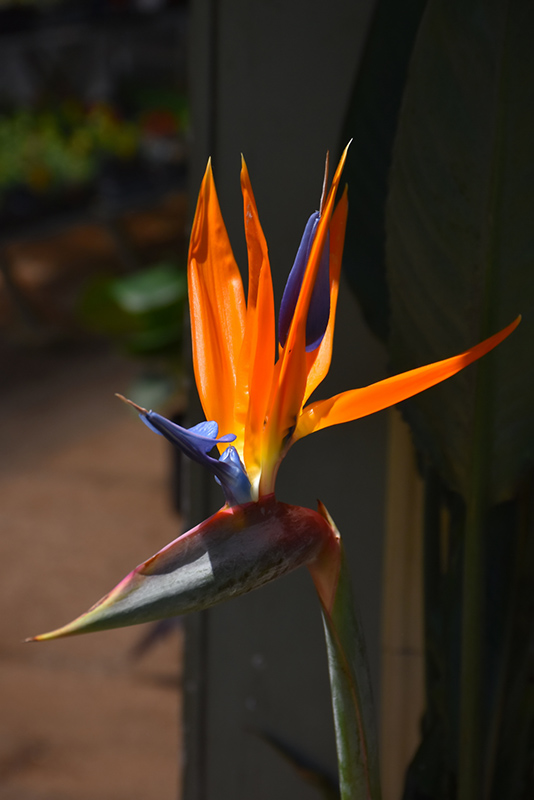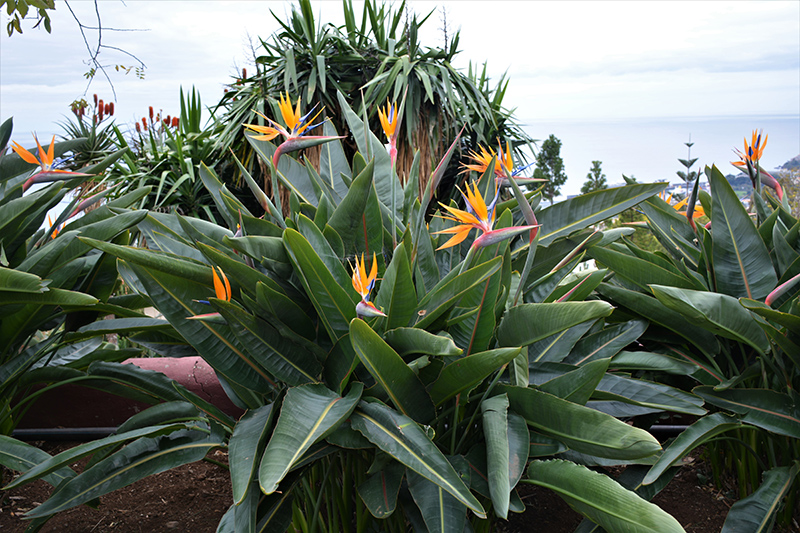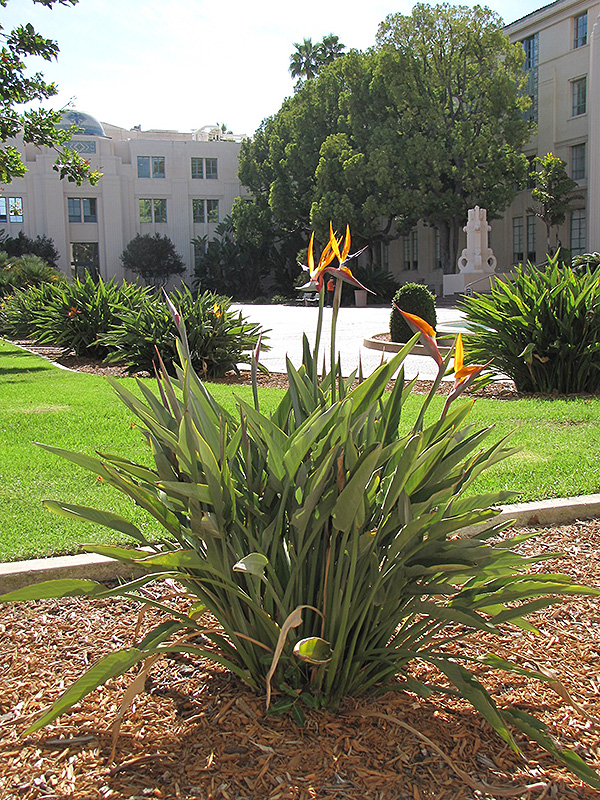Orange Bird Of Paradise
Strelitzia reginae
Plant Height: 4 feet
Flower Height: 5 feet
Spread: 3 feet
Sunlight:
![]()
![]()
Hardiness Zone: (annual)
Other Names: Orange Crane Flower
Description:
A beautiful and bold structural plant that forms large clumps of stiff foliage growing up from the base; stunning flowers of orange and blue rise high above the foliage, giving the appearance of a birds head; great cut flower; shelter from frost
Ornamental Features
Orange Bird Of Paradise features bold spikes of orange flowers with blue overtones rising above the foliage from late winter to late fall. The flowers are excellent for cutting. Its attractive large pointy leaves remain dark green in color with curious bluish-green undersides throughout the year.
Landscape Attributes
Orange Bird Of Paradise is an herbaceous evergreen tropical plant with tall flower stalks held atop a low mound of foliage. Its wonderfully bold, coarse texture can be very effective in a balanced garden composition.
This is a relatively low maintenance plant. Trim off the flower heads after they fade and die to encourage more blooms late into the season. It is a good choice for attracting birds, bees and butterflies to your yard. It has no significant negative characteristics.
Orange Bird Of Paradise is recommended for the following landscape applications;
- Accent
- Mass Planting
- General Garden Use
- Container Planting
Planting & Growing
This plant is native to the tropics and prefers growing in moist environments with evenly warm conditions all year round. In our climate, it is usually grown as an outdoor annual in the garden or in a container. If you want it to survive the winter, it can be brought in to the house and provided with special care, and then returned to the garden the following season. In its preferred tropical habitat, it can grow to be around 4 feet tall at maturity extending to 5 feet tall with the flowers, with a spread of 3 feet. However, when grown as an annual or when overwintered indoors, it can be expected to perform differently, and its exact height and spread will depend on many factors; you may wish to consult with our experts as to how it might perform in your specific application and growing conditions.
This plant does best in full sun to partial shade. It prefers to grow in average to moist conditions, and shouldn't be allowed to dry out. It is not particular as to soil pH, but grows best in rich soils, and is able to handle environmental salt. It is highly tolerant of urban pollution and will even thrive in inner city environments, and will benefit from being planted in a relatively sheltered location. Consider applying a thick mulch around the root zone in winter to protect it in exposed locations or colder microclimates. This species is not originally from North America. It can be propagated by division.
Orange Bird Of Paradise is a fine choice for the garden, but it is also a good selection for planting in outdoor pots and containers. With its upright habit of growth, it is best suited for use as a 'thriller' in the 'spiller-thriller-filler' container combination; plant it near the center of the pot, surrounded by smaller plants and those that spill over the edges. It is even sizeable enough that it can be grown alone in a suitable container. Note that when growing plants in outdoor containers and baskets, they may require more frequent waterings than they would in the yard or garden. Be aware that in our climate, most plants cannot be expected to survive the winter if left in containers outdoors, and this plant is no exception. Contact our experts for more information on how to protect it over the winter months.
-- THIS IS A TROPICAL PLANT AND SHOULD NOT BE EXPECTED TO SURVIVE THE WINTER OUTDOORS IN OUR CLIMATE --








